
No. 11, 2022 | 29 August 2022
Go to:
From FRSA's Executive Director
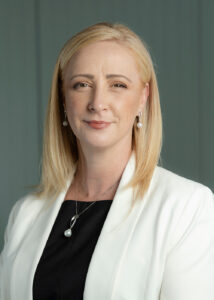
Today is Equal Pay Day! It’s a day that reminds me of the significance of the Equal Remuneration Order (ERO) for social and community services sector equal pay case back in 2012. It was seen as a significant advance for equal pay for women. The ALP, who was in power at that time, welcomed the Fair Work Commission’s ERO decision and committed to $2.1 Billion in funding to pay its share of the wage increase granted by FWA.
Only recently, FRSA was one of a number of organisations actively campaigning and successfully securing an increase in baseline funding to replace that funding (SaCS Supplementation) in an ongoing way for Family and Relationship Services.
Today, faced with a new decision handed down by the Fair Work Commission and a pay increase of 4.6% under the Award, we are working concertedly to ensure that the Commonwealth Government – led now by the ALP – commits to funding this increase so that we are able to meet the needs of children, families and communities in Australia. It is vital that funding keeps pace with the wages costs to ensure we do not undo the significant achievements that were made as a result of the 2012 ERO. Messaging from the Government is at this point in time positive but still lacking a firm commitment so, our efforts on this front continue. We are also grateful to ACOSS and their strong leadership in these endeavours. ACOSS is attempting to gain some pretty quick feedback on historical indexation rates paid for Commonwealth funded programs via THIS SURVEY and if you can assist I know your efforts will be gratefully received.
Last week, we kicked off with the first of the Communities of Practice groups for the DSS funded programs within the Families and Children Activity. Interest in participating in the Communities of practice has been strong and we have ended up establishing more than one Community of Practice Group for most program areas. Last week we ran a total of seven groups across three program areas: Communities for Children, Children and Parenting Support, and Family Mental Health Support Services. It is always an enriching experience talking with program managers and practitioners across the sector and we hope that these Community of Practice discussions will bring great value to all who participate and to their organisations. I am delighted to introduce you to our newest staff member, Sandra Rabjohns, whose role is dedicated to the Communities of Practice. You can learn a little more about Sandra below. We have also heard the call from our members funded by the AGD to deliver family law services who are also keen to see Communities of Practice operational in the family law space.
FRSA has been fielding a few calls from members in the last fortnight looking for slides etc from the FRSA Conference. In case you missed it, the conference website is now fully up-to-date with presentation slides (that we have permission to publish). In addition, there are some fabulous photos taken at the event – which we have also posted on the website. These are small file sizes, otherwise the website would grind to a halt, so, if any attendees are keen to access larger file sizes for printing or reproduction purposes, please contact Vanessa Lam our Communications Officer – communications@frsa.org.au.
Kind regards,
Jackie Brady
FRSA Executive Director
FRSA lunchtime webinar series
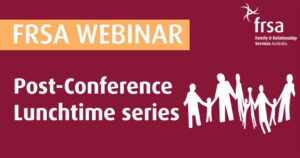 FRSA is excited to revisit presentations from the FRSA National Conference 2022 via this lunchtime webinar series during September.
FRSA is excited to revisit presentations from the FRSA National Conference 2022 via this lunchtime webinar series during September.
The presentations are from the Conference’s Thursday morning sessions, which FRSA wanted to showcase again due to factors on the day outside the control of the presenters resulting in low attendance in these sessions. The three presentations are from the Ageing and Telepractice streams.
- Socially connecting during a socially distancing pandemic | Wednesday 7 September 2022 | 12:30PM-1:00PM AEST | Presenter: Lucy Louca, PRONIA
During Melbourne’s extended COVID-19 lockdown and restrictions through their Family Relationship Program, PRONIA attended to an unparalleled number of calls for help, including from many who had never used the services before.
The presentation will draw on experiences gained in transitioning face-to-face services and programs to telephone service, and the challenges faced and benefits gained. Additional challenges faced within the counselling context will also be presented; these include unfamiliarity with the counselling process and historic trauma, not previously disclosed.
- Effective use of Telehealth Delivery in Supporting Children After Separation: Challenges and Solutions | Wednesday 21 September 2022 | 12:30PM-1:00PM AEST | Presenters: Melanie Weinstock & Josette Gardiner, Better Place Australia
The Supporting Children After Separation Program (SCASP), delivered by Better Place Australia, provides counselling to children and young people, 5 to 18 years old from separated families.
This presentation will explore the challenges SCASP practitioners have experienced in the transition to online counselling during COVID-19. Challenges have included assessing safety for telehealth sessions where high conflict is present as well as remotely navigating the dynamics of separated and blended families. It is important to then explore some solutions the program has discovered.
- Familial Abuse and Psychosocial Risk Factors in Older People from ATSI and CALD Backgrounds | Thursday 22 September 2022 | 12:30PM-1:00PM AEST | Presenter: Anna Gillbard, UnitingCare
Elder abuse is increasingly being recognised as an issue affecting people throughout Australia and the rest of the world. Elder abuse is defined as abuse which occurs within a relationship where there is an expectation of trust.
Data collected by an elder abuse helpline in Queensland was analysed to compare the types of abuse and risk factors of alleged victims from ATSI, CALD and Other (non-ATSI or CALD cases) backgrounds. Differences in patterns of abuse and reporting were found. Rates of trauma, level of English, income and wealth were found to differ as a function of ethnicity group. Between-group differences were also observed for alleged perpetrators with regards to age, income, wealth, substance abuse and trigger factors for the abuse.
Developing a better understanding of risk factors for ATSI and CALD victims and the alleged perpetrators can help to provide information to provide more targeted responses for both awareness raising activities and intervention strategies.
A national call to action: it’s time to renew and rebuild social connection
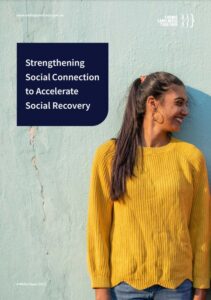 Ending Loneliness Together has launched its second White Paper which focuses on social connection to accelerate social recovery.
Ending Loneliness Together has launched its second White Paper which focuses on social connection to accelerate social recovery.
Loneliness and social isolation have had a significant impact on people throughout the COVID-19 pandemic. The new research shows that the health, social and economic consequences of the pandemic will be felt for many years to come and we need to act now to accelerate social recovery.
The group proposes four simple actions that the Federal Government can take to accelerate social recovery as we move towards a different phase of the COVID-19 pandemic.
- To build a strategic framework to promote meaningful social connection
- To strengthen our workforce capacity across all sectors to address loneliness
- To empower our community to help each other
- To invest in Australian-based scientific research in order to rapidly translate what works into practice and policy
National Head to Health phone service goes live
The new Head to Health phone service, which will help Australians access mental health support in their own communities, was launched this week.
Free phone calls are now available to the national Head to Health support line where people will receive advice, assessment, and referral to mental health services that best suit their needs.
The phone service will operate alongside physical Head to Health centres, satellites, and the Head to Health website.
Head to Health operates from 8:30am to 5pm weekdays on 1800 595 212.

FRSA's new Project Manager, Sandra Rabjohns
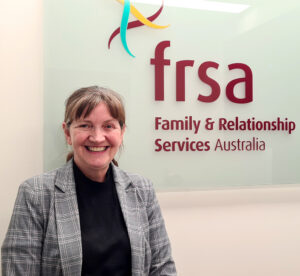 I am really pleased to join the team at FRSA to help deliver the 12-month Community of Practice (CoP) pilot project.
I am really pleased to join the team at FRSA to help deliver the 12-month Community of Practice (CoP) pilot project.
With this project providers delivering family and relationships services under the Department of Social Services’ Families and Children programs are coming together in a year-long series of CoP online discussions. It is hoped that the CoP sessions will:
- Enable providers to share information, experiences and practice knowledge which will help strengthen knowledge, skills and capabilities.
- Encourage innovative thinking that arises from shared experience and learning.
- Identify shared challenges for providers that may require systematic changes or support.
- Provide a foundation for long-term collaboration between providers to build capability in the sector.
I wanted to work on the CoP pilot project because I am interested in how innovation can improve the delivery of social services and am hopeful about the potential of CoPs to enhance the capacity of the community sector. Moreover, given the challenging times being experienced by the sector and the children, families and communities they support it seems an important and well-timed initiative.
My understanding of the family and relationships services sector comes from being a researcher, data developer and analyst at the Australian Institute of Health and Welfare for a decade. While there I worked on national community data collections including the homelessness services, housing and child protection datasets. I have also worked as a policy officer focussed on income support for single parents and young people.
While these work experiences have given me valuable insights, I am now looking forward to learning even more about the family and relationships services sector and getting to know all about FRSA’s many members.
On a personal note, I am the mother of two daughters (young adults) and agree strongly with CS Lewis’s view “You can never get a cup of tea large enough or a book long enough to suit me.” Also I love a good quote!

Charities consultation
On 15 August, the Assistant Minister for Competition, Charities and Treasury the Hon. Dr Andrew Leigh, announced the start of a nation-wide consultation with charities to discuss how to ‘reverse the collapse in community life.’ The Albanese Government has committed to being a ‘true partner’ with charities and will look to fix fundraising laws, double philanthropy by 2030, and support charitable advocacy.
The Assistant Minister is meeting with Australian Charity leaders through a series of ‘Building Community’ Town Hall meetings. Roundtables have already been held in Sydney, Melbourne, Perth, Adelaide, and Brisbane. A meeting in Canberra is scheduled for Tuesday 30 August 2022.
Government expresses concern about the level of coercive control in Australia
On 24 August, the Attorney General the Hon Mark Dreyfuss and the Minister for Social Services the Hon Amanda Rishworth put out a joint press release expressing their deep concern with the level of coercive control in Australia and the need for decisive action.
The Attorney-General and Minister Rishworth were responding to the findings of the Australian Bureau of Statistics analysis of Personal Safety Survey data, which found an estimated 2.2 million adult women and 1.4 million adult men have experienced emotional abuse by a partner at some point since the age of 15.
Earlier this month at the Meeting of Attorneys-General, Commonwealth, state and territory Attorneys-General agreed to the release of Australia’s first Draft National Principles to Address Coercive Control. The principles are seen as a first step in addressing the issue of coercive control.
The Draft National Principles to Address Coercive Control will be released for public consultation shortly and information on the consultation process will be available on the Attorney General’s Department website.
Establishment of the Royal Commission into Robodebt
Last week Prime Minister Albanese announced a Royal Commission into the former debt assessment and recovery scheme commonly known as Robodebt.
The inquiry will examine, among other things:
- The establishment, design and implementation of the scheme; who was responsible for it; why they considered Robodebt necessary; and, any concerns raised regarding the legality and fairness;
- The handling of concerns raised about the scheme, including adverse decisions made by the Administrative Appeals Tribunal;
- The outcomes of the scheme, including the harm to vulnerable individuals and the total financial cost to government; and
- Measures needed to prevent similar failures in public administration.
The Royal Commission will be led by Catherine Holmes AC SC, who is a former chief justice of the supreme court of Queensland who led the Queensland floods commission of inquiry after the 2010-11 floods.
The Government has allocated $30 million for the Royal Commission and the final report will be delivered to the Governor-General by 18 April 2023.
Senate Inquiry on work and care
The Senate Select Committee on Work and Care was appointed by resolution of the Senate on 3 August 2022 to inquire into the impact that combining work and care responsibilities has on the wellbeing of workers, carers, and those they care for. The committee will consider evidence on the extent and nature of work and care arrangements, the adequacy of current support systems, and effective work and care policies and practices in place in Australia and overseas.
The committee will present an interim report by 18 October 2022 and a final report by the second sitting Tuesday in February 2023.
Submissions close 8 September 2022.

Family Life awarded Family Violence Research Program funding
Family Life were recently awarded funding as part of a Family Violence Research Program 2021-2024.
Family Life’s research project, Windows of Opportunity: Therapeutic Family Safety Contact as a Pathway for Supporting Children and Young People who have experienced Family Violence, will focus on identifying effective therapeutic approaches to support recovery for children and young people as victim survivors.
The project is one of 13 research projects funded under the Victorian Government’s first phase of the Family Violence Research Program 2021-2024. The research will identify evidence gaps and support service improvement and innovation in prevention responses to family violence and sexual assault.

29 August is Equal Pay Day
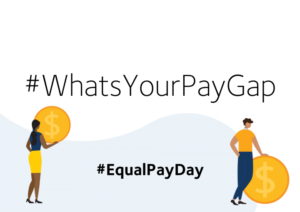 On average, women now earn 14.1%, or $263.90 a week less than men.
On average, women now earn 14.1%, or $263.90 a week less than men.
To earn the same average salary as men, women must work 60 extra days from the end of the financial year. That is why this year Equal Pay Day is on 29 August 2022.
We know one of the drivers of violence against women is men’s control of decision-making and limits to women’s independence – something that plays out both in public life and in private relationships, when women have unequal access to economic resources.
This is why increasing women’s independence and economic security is one of the many actions we need to take to promote gender equality and end violence against women.
For more information about the current gender pay gap visit the Workplace Gender Equality Agency.
R U OK Day
 R U OK Day is coming up on Thursday, 8 September.
R U OK Day is coming up on Thursday, 8 September.
R U OK? has developed free resources to help you encourage everyone in your school, workplace and community to think about who in their world might need to be asked how they’re really going and how to make a moment meaningful by asking “are you OK?” Visit their website to access the resources.
Strengthening Early Years Program by the Paul Ramsay Foundation
The Paul Ramsay Foundation (PRF) and the Australian Communities Foundation (ACF) have announced a national open grant round for programs and organisations working with families with children in the prenatal to two years of age range.
The grant round is part of PRF’s Strengthening Early Years, a program which aims to support families and children to ensure that every child has the opportunity to thrive upon school entry.
There are two grant types available:
- Large Grants: between $250,000 and $750,000 (total) for a period of up to five years are available and amounts will be determined on a case-by-case basis. Applications for a large grant close 5pm AEST, Tuesday 6 September 2022.
- Small/medium Grants: between $50,000 and $250,000 (total) for a period of up to five years are available and amounts will be determined on a case-by-case basis. Applications for for a small/medium grant close 5pm AEST, Wednesday 21 September 2022.
For more information or to apply visit the Australian Communities Foundation website.
National Child Protection Week 2022
National Child Protection Week 2022 is coming up on 4-10 September. This year’s theme will continue to embrace the overarching message that ‘Every child, in every community, needs a fair go’. In particular, this year will be shining a light on children growing up safe and supported.
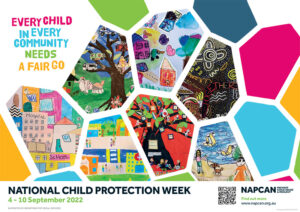 The 2022 theme is all about the importance of the ‘bigger picture’ in addressing child abuse and neglect. Children can thrive and be healthy when they have what they need to develop well. But not every family has these resources. This is why we need to support every child, family and community according to their needs.
The 2022 theme is all about the importance of the ‘bigger picture’ in addressing child abuse and neglect. Children can thrive and be healthy when they have what they need to develop well. But not every family has these resources. This is why we need to support every child, family and community according to their needs.
Child Protection Week 2022 will be an opportunity to translate this knowledge into action. All skillsets, all people, and all communities are assets in this important endeavour.
Find resources and how to get involved by visiting the NAPCAN website. They are also running a webinar series during the week, click here to find out more.
Nominations for the Association Awards 2022 are now open
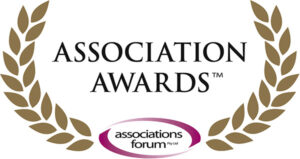 Nominations for the Association Awards 2022 and Associations Hall of Fame 2022 are now open.
Nominations for the Association Awards 2022 and Associations Hall of Fame 2022 are now open.
The Association Awardsᵀᴹ recognise excellence and accomplishment by associations and outstanding individuals. As well as due recognition, the process of nominating for an Award will be a worthwhile experience as it will encourage associations to consider the factors that make a successful association, turnaround or campaign.
This year’s categories include:
- The Association of the Year Award is presented to an exemplary association that has achieved overall excellence.
- The Association External Campaign of the Year Award is presented to an association that has made an outstanding achievement though an external campaign that has resulted in significant improvement for the association’s mission, sector or members.
- The Association Turnaround of the Year Award is presented to an association that was in very significant difficulties and successfully turned itself around in recent times.
- Associations Hall of Fame inductees will be individuals who have made an outstanding high-level contribution and commitment to an association or associations over a long period of time i.e. 30 or more years.
Nominations must be submitted by 5pm (AEST), Friday, 30 September 2022. For more information on the Association Awards visit the website.
Barriers to record keeping in child protection
Researchers from Monash University are seeking child protection practitioners, family support practitioners and case workers to help them better understand the challenges to rights-based and child-centred record keeping within child safety and wellbeing contexts. Participation can be via an online survey or an interview.
THERAPLAY LEVEL 1 & MIM – Melbourne
HEY LITTLE WARRIOR – Gold Coast
A DEVELOPING BRAIN – Gold Coast
ANXIETY IN CHILDREN & TEENS – Brisbane
Men Choosing Change program: Findings of a long-term evaluation webinar | Uniting Care | 2 September 2022 | 12:00 PM – 1:00 PM AEST
UnitingCare Queensland is committed to addressing domestic and family violence, and men’s behaviour change programs are an important part of that work.
One such program is Men Choosing Change, which has been running for over 12 years.
Over the past four years, researchers from the Queensland Centre for Domestic and Family Violence Research (QCDFVR) at CQUniversity have partnered with UnitingCare to evaluate the effectiveness of the program.
The report from the final stage of this evaluation has now been released, and we invite you to join our panelists and presenters as they discuss the findings.
NT
Family Dispute Resolution Practitioner | Relationships Australia NT
Counsellor (Family and Relationship Services) | Relationships Australia NT
VIC
Family Relationship Counsellor – Child Practitioner | Relationship Matters
Coordinator Mental Health Support | Relationships Australia Victoria
Community Connections Practitioner | Child & Family Services Ballarat
Family Violence Practitioner and Men’s Case Management – Sunshine | Relationships Australia Victoria
SA
Communications Coordinator | Uniting Communities
Case Manager | Centacare Catholic Family Services
ACT
Family Dispute Resolution Practitioner | Conflict Resolution Service
NSW
Counsellor(s) | Relationships Australia NSW
If you have any events you’d like listed on the FRSA Events and Training Calendar or job vacancies you’d like listed on the FRSA Jobs Board, email Communications Officer, Vanessa Lam at communications@frsa.org.au. Please note that posting onto the FRSA website is reserved for FRSA Members only.

In their words: how to support young people in suicidal distress | Suicide Prevention Australia
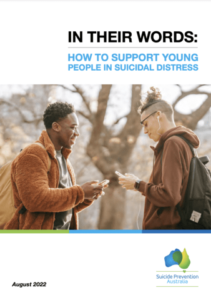 Emergency department presentations for young people who have self-harmed or are experiencing suicidal ideation are on the increase. This report outlines better alternatives, including safe spaces with youth peer workers or a crisis support team that comes to the young person’s home.
Emergency department presentations for young people who have self-harmed or are experiencing suicidal ideation are on the increase. This report outlines better alternatives, including safe spaces with youth peer workers or a crisis support team that comes to the young person’s home.
The voices of children and young people in out-of-home care 2021 | Advocate for Children and Young People (NSW)
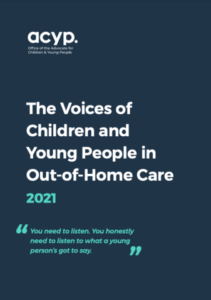 In 2021, the ACYP team spoke to 99 children and young people across NSW who are currently or who were previously in out-of-home care. This report outlines the experiences of those young people and provides their suggestions for what needs to change.
In 2021, the ACYP team spoke to 99 children and young people across NSW who are currently or who were previously in out-of-home care. This report outlines the experiences of those young people and provides their suggestions for what needs to change.
Australian child protection legislation | Australian Institute of Family Studies
This resource sheet provides a brief overview of child protection legislation across state and territory jurisdictions in Australia.
Homelessness and child mental health | Emerging Minds
This podcast explores the topic of homelessness and its impacts on children and families – in particular, how it affects child mental health. Most importantly, it provides workable strategies and skills for improving support to families experiencing homelessness.
Housing First: an evidence review of implementation, effectiveness and outcomes | Australian Housing and Urban Research Institute
 Housing First originates from the Pathways to Housing program in the United States. This evidence review synthesises the Australian and international literature on Housing First and its implementation, effectiveness and outcomes.
Housing First originates from the Pathways to Housing program in the United States. This evidence review synthesises the Australian and international literature on Housing First and its implementation, effectiveness and outcomes.
ldentifying strategies to better support foster, kinship and permanent carers: Final report | Australia Institute of Family Studies
This is the final report from the research project Identifying Strategies to Better Support Foster, Kinship and Permanent Carers. It brings together findings from the desktop review with data from the consultations.
A plan to end homelessness | Homelessness Australia
This strategy document asserts that homelessness can be solved through providing more safe and affordable housing, ensuring people’s incomes allow them to afford housing and other essentials, and providing support where needed for people to get into and sustain a home.
‘Mental health shapes my life’: COVID-19 and kids’ wellbeing 2022 | Australian Human Rights Commission
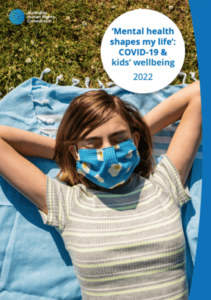 This report captures experiences and provides recommendations for meeting the mental health and wellbeing needs of children affected by the COVID-19 pandemic in Australia. Each recommendation relates to the priority areas of the National Mental Health and Wellbeing Pandemic Response Plan, as well as to issues raised in the report.
This report captures experiences and provides recommendations for meeting the mental health and wellbeing needs of children affected by the COVID-19 pandemic in Australia. Each recommendation relates to the priority areas of the National Mental Health and Wellbeing Pandemic Response Plan, as well as to issues raised in the report.
National sexual violence responses | Australian Institute of Health and Welfare
This report brings together data from a range of sources to build a better understanding of sexual violence responses. It looks at where people seek support, and the patterns in service use. It also discusses data gaps, highlights opportunities for data improvements and complements the ongoing national reporting on family, domestic and sexual violence.
Ending homelessness in Western Australia 2022 | Centre for Social Impact
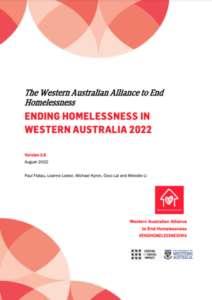 This report builds on CSI UWA’s previous work by presenting an analysis of homelessness in Western Australia and detailing the important systems and service initiatives that are on the ground now to end homelessness in Western Australia.
This report builds on CSI UWA’s previous work by presenting an analysis of homelessness in Western Australia and detailing the important systems and service initiatives that are on the ground now to end homelessness in Western Australia.
Supporting children who disclose trauma | Emerging Minds
A two-part podcast series takes practitioners through the support they can offer children who disclose physical or sexual trauma. Organised by Emerging Minds, the series features David Tully, currently the Practice Manager at Relationships Australia SA.
In the first video, David discusses the role of power, acts of resistance and secrecy. In the second video, David looks at the role of therapy, identity, labels and interventions.
Want to submit something to the FRSA eBulletin?
If you have an news item or event that you would like to be featured in a future eBulletin please submit your announcement via the form below or email communications@frsa.org.au with the subject “FRSA eBulletin submission”.
Please note FRSA members receive priority for items posted in the eBulletin. And to keep information current, relevant and useful, submissions will not be repeated from week to week.
Subscribe
Subscribe to receive future eBulletin editions directly to your inbox!






